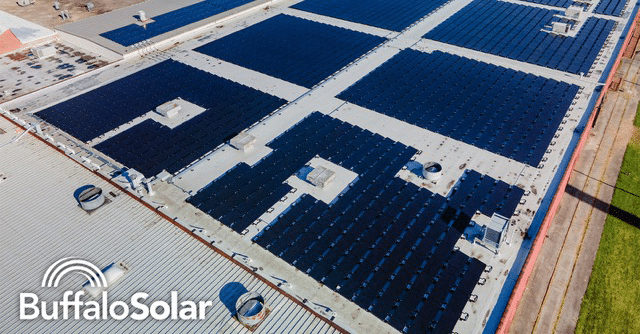New York’s energy sector is evolving. Thanks to technological progress, it’s become clear that clean energy plays a central role in powering our state’s future.
What’s needed is continued support for entrepreneurs and innovators eager to push us in this promising direction. Over the past year, we’ve seen this type of assistance—in the form of incubator guidance, research assistance, necessary funding and more—in every corner of state. Investments in the development of renewable energy–supporting tech are fueling an ever-growing industry, employing more New Yorkers, and improving our quality of life.
These advancements are significant; and facilitated by Empire State Development’s Division of Science, Technology and Innovation (NYSTAR), each is either currently or aiming to make an impact in a specific region, or specialty area. But when looked at as a whole, the resources provided to innovators by the NYSTAR network has helped make New York a national leader in clean energy development.
The best part? With new technologies on the horizon, New York has potential to expand its already formidable efforts even further.
Improving access to clean energy systems
Buffalo Solar’s sales team struggled to navigate its operations or verify its product availability due to various technological inefficiencies. These issues were time-consuming and inevitably took hours away from prospecting for new business. After entering a partnership with the University of Rochester’s Center of Excellence in Data Science and Artificial Intelligence Summer Internship Program in June 2023, the company found a fresh perspective and innovative ideas. The additional personnel, and the ideas they brought to the table, enabled Buffalo Solar to implement tools to mitigate these inefficiencies, empower salespeople to connect with new customers, and produce $1 million in increased revenues in 2024.
These improvements also enabled the company to create four new sales positions and recently hire a new data engineering position to continue to make their sales processes more efficient.
In the case of other renewable energy companies, scaling up production has been key to creating efficient operations and improving access to clean capabilities. Working with the NYSTAR-affiliated Southern Tier Startup Alliance, REEgen, Inc.—focused on creating clean, biological processes to extract and purify rare earth elements for use in the clean energy sector—was awarded $200,000 by The Air Force Research Laboratory (AFRL) Regional Network–Mid-Atlantic, a leading pilot innovation network that fosters collaboration across academia, industry, and defense to fuel dual-use commercialization and technological advancements. Monies will go toward increasing the company’s efforts in bacteria-based rare earth element (REE) purification in the coming year.
Collaboration to address carbon emissions
With all the inspiring innovations moving New York’s clean energy efforts forward, it can be easy to overlook a foundational driver of these achievements: NYSTAR-enabled collaboration.
Just look to the work of Ithaca’s Carbon to Stone.
Over the past year, Carbon to Stone has received more than $600,000 from the Carbontech Development Initiative (administered by Columbia University and supported by NYSERDA), plus an STTR Phase I award from the U.S. Department of Energy and a NYSTAR Innovation Matching Grant, to advance its innovative carbon management technology. But even before this financial support arrived, Carbon to Stone utilized a variety of capabilities offered throughout the Cornell Center for Materials Research (CCMR) Jumpstart Program. Throughout the Fall 2024 semester, the Carbon to Stone team used CCMR facilities and instruments to measure the viscosity of CO2 capture solvents; study morphology of residues and mineralized products; and use x-ray diffraction analysis techniques to understand structural characterization of various materials.
Thanks to this collaboration with Cornell, the company is better equipped to use its technology—and the financial support behind it—to reduce carbon dioxide emissions associated with steel and metals manufacturing by 8 to 10%; lower the carbon footprint of concrete by 30%; and through its clean processes, yield metals that are essential for the advancement of clean energy technologies.
Harnessing the power of support—and wind
Oftentimes, the biggest obstacles to technology commercialization are access to funding, industry guidance, and development support. After receiving its start in New York City Innovation Hot Spot I-Corps in 2022, Aerovec—an innovative wind turbine startup—has now found this crucial assistance. The company was recently selected as a recipient of an EnergyWerx commercialization support voucher from the U.S. Department of Energy (DOE) and intends to advance its small-rotor wind turbine technology, which has shown tremendous promise as a portable renewable energy solution.
Further upstate, the Virtual Offshore Wind Energy Laboratory and Simulator (VOWELS) is a University at Albany Center of Excellence-led initiative designed to simulate the production dynamics of over 30 gigawatts of potential offshore wind energy capacity along the New England and Mid-Atlantic coasts. Now partnering with the New York–based UL Solutions, VOWELS aims to support stakeholders—including grid operators, government planners, project developers, and researchers—with virtual interaction and real-time data analysis that could eventually ensure a smoother, more predictable integration of offshore wind energy into the New York State grid.
Thanks to the many NYSTAR assets for continuing to submit their success stories. Click here to share your story for potential inclusion in our blog—we want to hear from you!

